Pay Per Click (PPC) Advertising FAQs
This FAQ page covers the basics of Pay Per Click (PPC) advertising, including how it works, budgeting, and optimization strategies to help you drive targeted traffic and improve ad performance.
What is Pay Per Click (PPC) Advertising?
Pay Per Click (PPC) advertising is a form of online marketing where businesses pay a fee each time their ad is clicked. Advertisers bid on keywords that are relevant to their target audience. When someone searches for those keywords, the ad appears in search results, and the advertiser only pays when the ad is clicked. PPC can help drive targeted traffic to your website and increase conversions.
How much does Pay Per Click advertising cost?
The cost of PPC advertising in India depends on factors like the industry, competition, and the keywords you're targeting. On average, the cost-per-click (CPC) can range from ₹5 to ₹100 or more, depending on the competitiveness of the keywords. A well-optimized PPC campaign can help you get more out of your budget by targeting the right audience effectively.
Is Pay Per Click advertising worth the investment?
Yes, Pay Per Click advertising can be a very effective investment, especially if you need immediate traffic and want to generate leads or sales. When done correctly, PPC campaigns can deliver a high return on investment (ROI). It’s crucial to focus on targeting the right keywords, optimizing your ads, and constantly tracking and improving your campaigns to maximize results.
How do I create a successful PPC campaign?
To create a successful PPC campaign, follow these steps:
- Keyword Research: Identify relevant and high-performing keywords for your business.
- Set Clear Goals: Define whether you want to increase traffic, generate leads, or make sales.
- Create Compelling Ads: Write ads that are clear, relevant, and include a strong call-to-action.
- Optimize Landing Pages: Ensure your landing pages match the ad’s message and are optimized for conversions.
- Monitor and Optimize: Regularly check your campaigns, adjust bids, refine targeting, and test ad copy for the best results.
How do I track the performance of my PPC campaign?
You can track the performance of your PPC campaign using tools like Google Ads and Google Analytics. These platforms provide insights into metrics like impressions, clicks, conversion rates, and return on investment (ROI). Analyzing these data points will help you understand which ads and keywords are performing well, so you can adjust your strategy for better results.
You can track the performance of your PPC campaign using tools like Google Ads and Google Analytics. These platforms provide insights into metrics like impressions, clicks, conversion rates, and return on investment (ROI). Analyzing these data points will help you understand which ads and keywords are performing well, so you can adjust your strategy for better results.
What are the advantages of PPC over SEO?
PPC provides instant visibility on search engine results, whereas SEO takes longer to show results. With PPC, you can target specific keywords and reach your audience immediately, whereas SEO requires ongoing effort to improve rankings. PPC also offers more control over your ad budget and targeting, while SEO is more organic and longer-term. Both strategies complement each other, but PPC is ideal for immediate results.
How can I reduce the cost of my PPC campaigns?
To reduce the cost of your PPC campaigns, try the following strategies:
- Target long-tail keywords: These are less competitive and can be more affordable.
- Optimize your Quality Score: Google rewards relevant, well-structured ads with lower costs.
- Use negative keywords: Prevent your ads from showing up for irrelevant searches.
- Refine targeting: Focus on the right audience by adjusting location, devices, and time of day.
What is a Quality Score in PPC?
Quality Score is a metric used by Google Ads to measure the quality and relevance of your ads, keywords, and landing pages. A higher Quality Score can lead to lower cost-per-click and better ad positioning. It’s based on factors like expected click-through rate (CTR), ad relevance, and the quality of your landing page.
How do I choose the right keywords for my PPC campaign?
To choose the right keywords for your PPC campaign:
- Use keyword research tools like Google Keyword Planner or SEMrush.
- Focus on intent-based keywords that match what your potential customers are searching for.
- Target long-tail keywords for less competition and higher relevance.
- Consider local keywords if you are targeting a specific geographic area in India.
Can PPC help my business grow faster?
Yes, PPC advertising can accelerate your business growth by bringing in targeted traffic quickly. Unlike organic SEO, which takes time to produce results, PPC allows you to reach customers immediately. By targeting the right keywords and optimizing your campaigns, you can drive relevant traffic to your website, increase conversions, and generate revenue faster.
What is the difference between Google Ads and Facebook Ads?
Google Ads targets users based on their search intent—when people actively search for specific keywords. Facebook Ads, on the other hand, target users based on demographics, interests, and behaviors, which can help you reach a wider audience. Both have their strengths, and choosing one depends on your business goals and target audience.
What is CPC (Cost Per Click) in PPC?
CPC stands for Cost Per Click, which is the amount you pay each time someone clicks on your ad. In PPC advertising, CPC is a key metric used to measure the cost-effectiveness of your campaigns. Advertisers bid on keywords, and the amount they pay per click depends on the competition for those keywords and the quality of their ads.
What is a Google Ads Remarketing Campaign?
A remarketing campaign targets users who have already interacted with your website or app but didn't complete a desired action, like making a purchase or filling out a contact form. By showing them targeted ads across other websites or platforms, remarketing helps to bring these users back and increase conversions
How do I target the right audience with PPC?
To target the right audience with PPC, use detailed targeting options such as location, age, gender, device type, and interests. Additionally, use keywords that are highly relevant to your business, create compelling ad copy, and continuously analyze performance data to refine your audience targeting.
What are negative keywords in PPC?
Negative keywords are terms you exclude from your PPC campaigns to prevent your ads from showing up for irrelevant searches. For example, if you sell high-end products, you may use negative keywords like "cheap" or "discount" to avoid attracting users who are not likely to convert, thus improving your ad relevance and cost-efficiency.
How can I improve my PPC Quality Score?
To improve your Quality Score, focus on the following factors:
- Ad relevance: Ensure your ads match the search intent and are closely related to your keywords.
- Landing page experience: Your landing page should be relevant, load quickly, and offer a seamless user experience.
- Expected click-through rate (CTR): Write compelling ad copy to encourage clicks.
- Keyword relevance: Choose keywords that are highly relevant to the ad and landing page.
How can I optimize my PPC budget?
To optimize your PPC budget:
- Bid smartly: Use automated bidding strategies like target CPA or ROAS to control costs.
- Focus on high-performing keywords: Pause or reduce bids on underperforming keywords.
- Monitor and adjust: Regularly analyze your campaigns and adjust bids, targeting, and budget allocation based on performance.
- Use ad extensions: Take advantage of ad extensions like sitelinks and callouts to improve ad visibility without increasing cost.
What is an ad extension in PPC?
An ad extension is an additional piece of information that appears below your main ad, such as a phone number, location, or additional links. Ad extensions improve the visibility and relevance of your ad, making it more likely to attract clicks and potentially improving your Quality Score, leading to lower costs.
Can I use PPC advertising for local businesses?
Yes, PPC advertising can be highly effective for local businesses. With Google Ads, you can set location targeting to ensure your ads are shown to people in your specific geographic area. Additionally, Google Local Services Ads and Google My Business integration can help boost visibility for local businesses searching for specific services in their area.
What are the common mistakes to avoid in PPC advertising?
Common PPC mistakes include:
- Ignoring negative keywords, leading to irrelevant clicks.
- Not tracking conversions or performance metrics.
- Overlooking mobile optimization for mobile users.
- Targeting too broad an audience, wasting budget on unqualified clicks.
- Not optimizing landing pages, which can lead to high bounce rates.
- Not testing and refining your ads regularly to improve performance.
OrgoDigital represents a seamless fusion of “Organic” and “Digital” growth in the realms of technology and digital marketing. From crafting dynamic websites and high-performing apps to implementing data-driven marketing strategies, we focus on creating sustainable growth while delivering exceptional value to our clients.
Our Services
Contact Us
Useful Links
©2024. Orgo Digital. All Rights Reserved.



